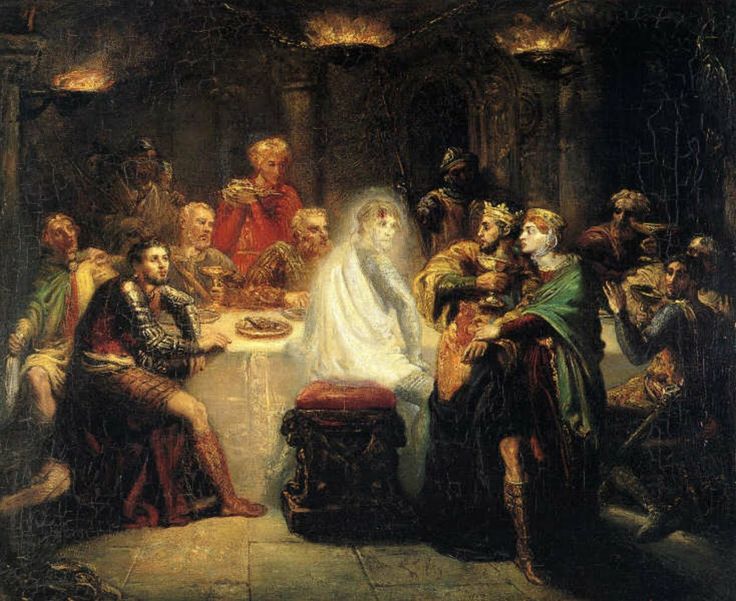Monday – Halloween
I reprint today a post on how Shakespeare can enhance your Halloween. May your doorways be filled with shrieking and squealing ghosts.
Today, as you certainly know if you are an American with children, is Halloween, the holiday that has evolved out of All Hallow’s Eve. If you are a child, it is a day when you have special license to eat all the candy that you can gather from neighbors. If you are older, you get to tap into your alter ego (or eggo).
To honor the holiday, I went rummaging through Shakespeare to find appropriate passages in Shakespeare.
Warning: they are very scary.
There’s a great one in Julius Caesar, where Caesar’s wife Calpurnia warns him of danger signs:
Caesar, I never stood on ceremonies,
Yet now they fright me. There is one within,
Besides the things that we have heard and seen,
Recounts most horrid sights seen by the watch.
A lioness hath whelped in the streets;
And graves have yawn’d, and yielded up their dead;
Fierce fiery warriors fought upon the clouds,
In ranks and squadrons and right form of war,
Which drizzled blood upon the Capitol;
The noise of battle hurtled in the air,
Horses did neigh, and dying men did groan,
And ghosts did shriek and squeal about the streets.
O Caesar! these things are beyond all use,
And I do fear them.
These particular ghosts made such an impression on Shakespeare that he refers to them again in Hamlet. The passage occurs after Horatio has seen old Hamlet’s ghost:
In the most high and palmy state of Rome,
A little ere the mightiest Julius fell,
The graves stood tenantless and the sheeted dead
Did squeak and gibber in the Roman streets:
As stars with trains of fire and dews of blood,
Disasters in the sun; and the moist star,
Upon whose influence Neptune’s empire stands,
Was sick almost to doomsday with eclipse:
And even the like precurse of fierce events,
As harbingers preceding still the fates
And prologue to the omen coming on,
Have heaven and earth together demonstrated
Unto our climatures and countrymen—
Macbeth has a reaction to Banquo’s ghost that many a child hopes for when he or she dons a scary mask:
Avaunt! and quit my sight! let the earth hide thee!
Thy bones are marrowless, thy blood is cold;
Thou hast no speculation [eyeballs] in those eyes
Which thou dost glare with!
And then there are those ghosts that Puck mentions:
My fairy lord, this must be done with haste,
For night’s swift dragons cut the clouds full fast,
And yonder shines Aurora’s harbinger;
At whose approach, ghosts, wandering here and there,
Troop home to churchyards: damned spirits all,
That in crossways and floods have burial,
Already to their wormy beds are gone;
For fear lest day should look their shames upon,
They willfully themselves exile from light
And must for aye consort with black-brow’d night.
These passages probably hit Renaissance audiences hard since Shakespeare seems to go out of his way to provide reassurance following each one. Oberon reminds Puck that “we are spirits of a different sort,” and Caesar replies to Calpurnia with the memorable passage,
Cowards die many times before their deaths;
The valiant never taste of death but once.
Lady Macbeth tries to use common sense:
Why do you make such faces? When all’s done,
You look but on a stool.
Marcellus, meanwhile, consoles Horatio with the belief note that, on Easter, cocks crow all night long so that the dead dare not show their faces:
Some say that ever ‘gainst that season comes
Wherein our Savior’s birth is celebrated,
The bird of dawning singeth all night long:
And then, they say, no spirit dares stir abroad;
The nights are wholesome; then no planets strike,
No fairy takes, nor witch hath power to charm,
So hallow’d and so gracious is the time.
Happy Halloween.


